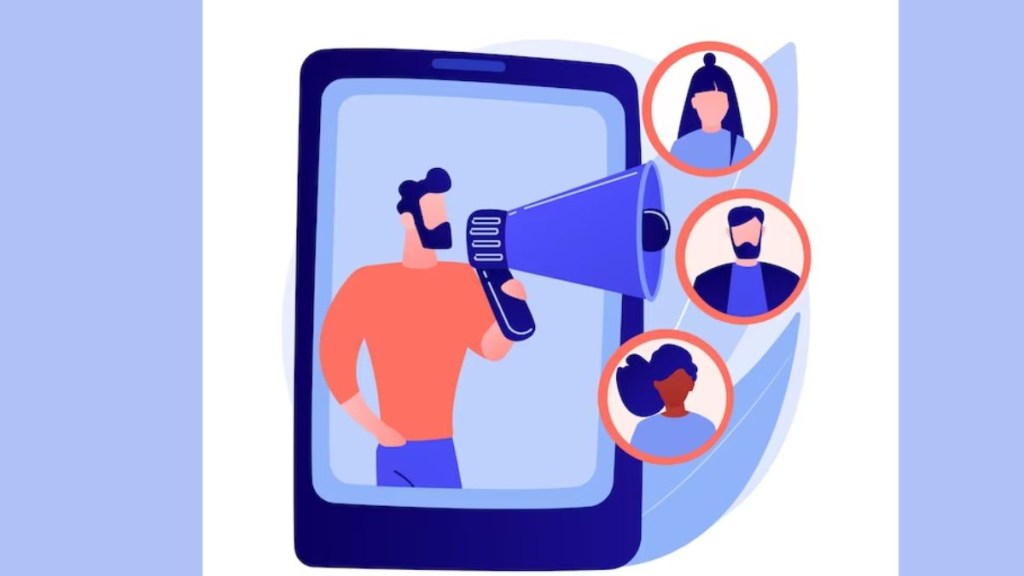By Ajit Narayan
Influencer advocacy is a powerful marketing strategy that involves leveraging the influence and credibility of influencers to promote a brand or product. Influencer advocacy is different from traditional influencer marketing in that it involves more than just paid sponsorships or endorsements. Rather, it involves building genuine relationships with influencers who are passionate about a brand or product and who are willing to advocate for it to their followers.
The power of influencer advocacy lies in the ability of influencers to create a personal connection with their followers. People trust and admire influencers because they view them as authentic and relatable. They see influencers as real people who share their interests and values. When an influencer advocates for a brand or product, it feels like a recommendation from a friend rather than an advertisement.
One example of a successful influencer advocacy campaign is the #LikeAGirl campaign by Always. The campaign was designed to empower young girls and women by challenging the negative connotations associated with doing things “like a girl.” Always partnered with influencers such as Olympic gold medalist Alex Morgan and YouTube star Ingrid Nilsen to spread the message of the campaign to their followers. The influencers shared personal stories and messages of empowerment and encouraged their followers to share their own stories using the hashtag #LikeAGirl.
The campaign was a huge success, generating over 4 billion impressions and winning numerous awards. The success of the campaign was due in large part to the power of influencer advocacy. The influencers who participated in the campaign were passionate about the message of the campaign and were able to create a personal connection with their followers. This helped to spread the message of the campaign to a wider audience and make it feel more authentic and relatable.
Influencer advocacy can be particularly effective for brands that are trying to reach a younger demographic. Young people are more likely to trust and engage with influencers than with traditional advertisements. They are also more likely to be influenced by the opinions and recommendations of their peers. By partnering with influencers who are popular among young people, brands can tap into this influential demographic and create a powerful marketing strategy.
Another example of a successful influencer advocacy campaign is the #ShareACoke campaign by Coca-Cola. The campaign involved printing people’s names on Coca-Cola bottles and encouraging people to share a Coke with someone whose name was on the bottle. Coca-Cola partnered with influencers such as YouTube star Tyler Oakley and Vine star Cody Johns to spread the message of the campaign to their followers. The influencers shared photos and videos of themselves sharing a Coke with their friends and encouraged their followers to do the same.
The campaign was a huge success, generating over 500,000 photos and videos shared on social media using the hashtag #ShareACoke. The success of the campaign was due in large part to the power of influencer advocacy. The influencers who participated in the campaign were able to create a personal connection with their followers and make the campaign feel like a fun and social activity rather than an advertisement.
Influencer advocacy can also be an effective way to reach niche audiences. By partnering with influencers who have a specific expertise or interest, brands can reach a targeted audience that is more likely to be interested in their product or service. For example, a brand that sells vegan food products might partner with influencers who are passionate about veganism and plant-based diets to promote their products to a targeted audience.
In order for influencer advocacy to be successful, it is important for brands to choose the right influencers to partner with. Brands should look for influencers who are passionate about their product or service and who have a genuine connection with their followers. They should also look for influencers who have a strong personal brand and who are viewed as authentic and relatable.
In addition to choosing the right influencers, it is also important for brands to build genuine relationships with their influencers. Brands should engage with their influencers on a personal level, listen to their feedback and ideas, and provide them with the resources and support they need to be effective advocates. Brands should also give their influencers creative freedom and allow them to share their personal experiences and opinions in a way that feels authentic and genuine.
Viral marketing techniques can also be used to amplify the impact of influencer advocacy. Brands can create shareable content such as videos, memes, or challenges that encourage their followers to engage with their brand and spread their message. By combining influencer advocacy with viral marketing techniques, brands can create a powerful marketing strategy that reaches a wide audience and generates buzz and excitement around their brand or product.
Influencer advocacy is a powerful marketing strategy that can help brands build credibility, reach targeted audiences, and create personal connections with their customers.
The author is the chief marketing officer, Socxo, a brand advocacy platform that develops and manages employee, customer, partner and influencer advocacy programs.
